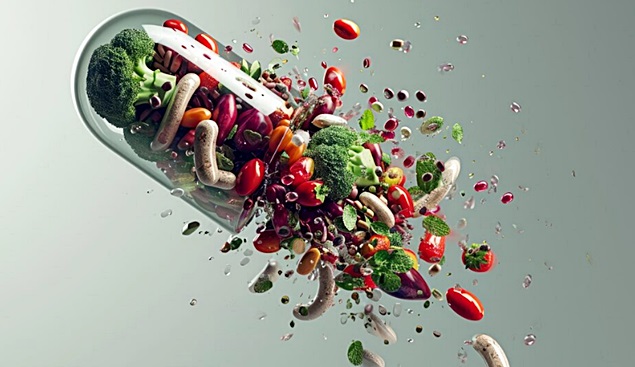1250

Low-Cortisol Diet Gains Traction: What It Is and How It Could Reshape the Food Industry
The low-cortisol diet is rapidly gaining momentum, especially on social media platforms. With hashtags like #cortisol amassing over 558,000 mentions on Instagram and 454,000 on Facebook, the trend is becoming a focal point for health-conscious consumers and a potential goldmine for food and beverage producers.
From the low-histamine diet to the Autoimmune Protocol (AIP), wellness trends have increasingly shaped the food industry. Now, the low-cortisol diet is emerging as a new force influencing consumer behavior and product development.
What Is Cortisol?
Cortisol is a steroid hormone naturally produced by the adrenal glands. It's released in response to stress or low blood glucose levels and plays a key role in:
- Increasing blood sugar
- Suppressing the immune system
- Regulating metabolism
While cortisol is essential for survival, chronically elevated cortisol levels can lead to numerous health problems, including:
- Hypertension, heart disease, and type 2 diabetes
- Weight gain due to increased appetite and fat storage
- Sleep disorders
- Brain fog and lack of mental clarity
- Weakened immune function
- Mood disorders like anxiety and depression
- Cushing’s syndrome (a rare disorder caused by too much cortisol)
- Bone loss, due to increased resorption for energy production
Symptoms of high cortisol include easy bruising, flushed face, large bright stretch marks, tremors, and elevated heart rate.
What Is the Low-Cortisol Diet?
Although there is no formal medical definition yet, the low-cortisol diet is broadly recognized as a nutritional approach focused on:
- Eliminating foods that trigger cortisol spikes
- Promoting foods that may reduce cortisol levels
Foods that may increase cortisol:
- Red meat
- Highly processed foods
- Refined carbs (e.g., white bread)
- Alcohol and caffeine
Foods that may help lower cortisol:
- Fruits and vegetables
- Whole grains
- Legumes (beans, lentils)
- Lean protein (e.g., poultry)
- Fatty fish (e.g., salmon, mackerel)
- Low-fat options
Gut health also plays a potential role in cortisol regulation. According to Fiona Brannigan, dietitian and founder of Inspirit Nutrition and Dietetic Consultancy, a plant-rich diet and fermented foods may support lower cortisol levels. She also notes emerging evidence supporting adaptogenic herbs like ashwagandha and rhodiola in cortisol management.
A Market Opportunity for Food & Beverage Brands
Global research by Ipsos shows that over 60% of people have experienced stress intense enough to impact daily life, with women (66%) reporting slightly higher stress levels than men (58%). Turkey leads globally in reported stress levels (76%), while Japan is lowest at 44%.
For those experiencing chronic stress, adopting a cortisol-conscious diet could lead to significant health benefits. However, experts caution that overly restrictive diets may:
- Create nutrient deficiencies
- Cause additional stress from rigid adherence
- Lead to unhealthy relationships with food
“Like any diet, there’s a risk of added stress from trying to eat perfectly, which can backfire,” says Brannigan.
This highlights a major opportunity for the food industry: developing low-cortisol-friendly products that offer nutritional balance without dietary stress.
In the same way most supermarkets now offer gluten-free or dairy-free alternatives, it’s not far-fetched to imagine dedicated shelves for “low-cortisol” or “stress-reducing” food lines.
If you’d like, I can also provide:
- A pitch deck concept for food companies targeting this trend
- Labeling and marketing suggestions aligned with cortisol-related messaging
- A nutritionist-reviewed sample diet plan based on low-cortisol principles





